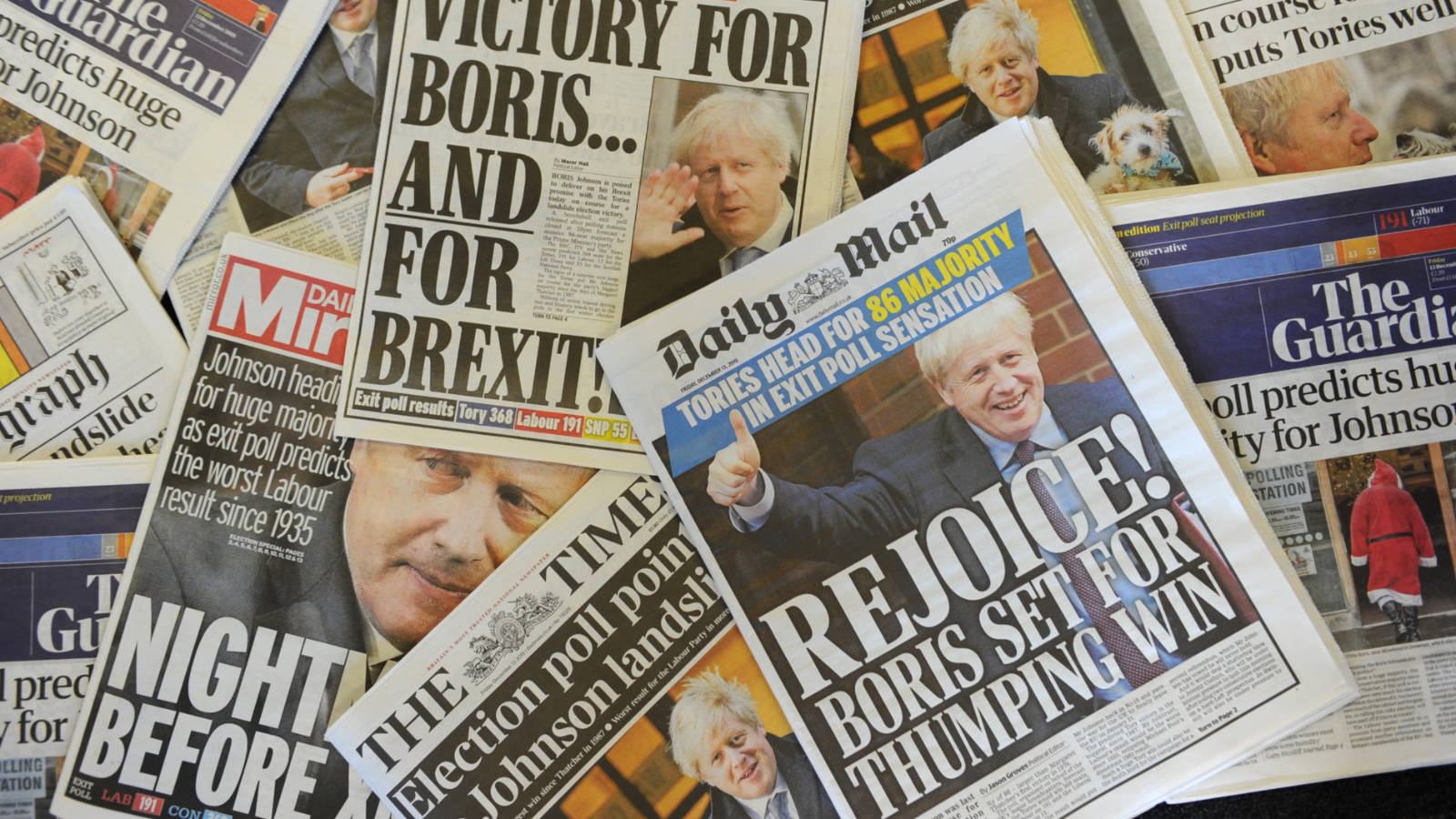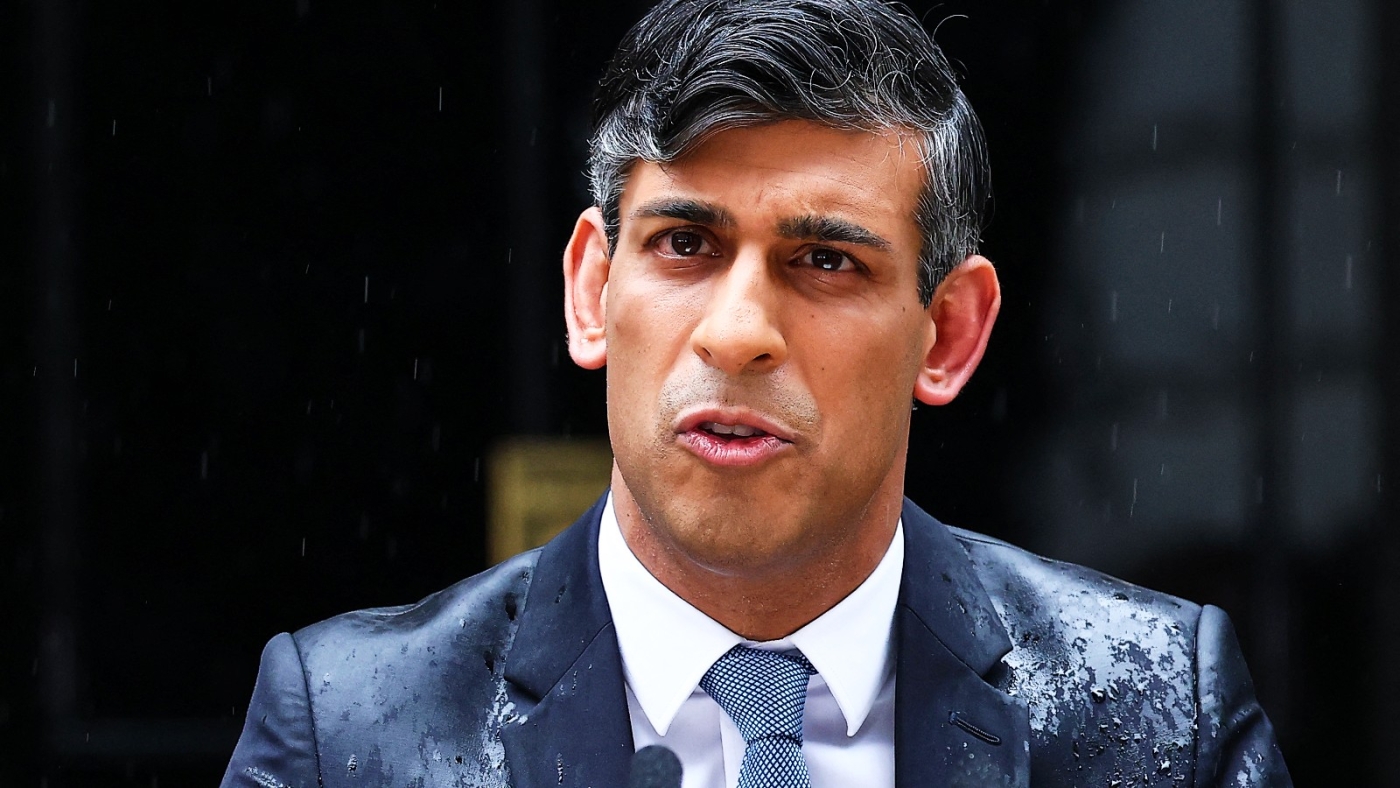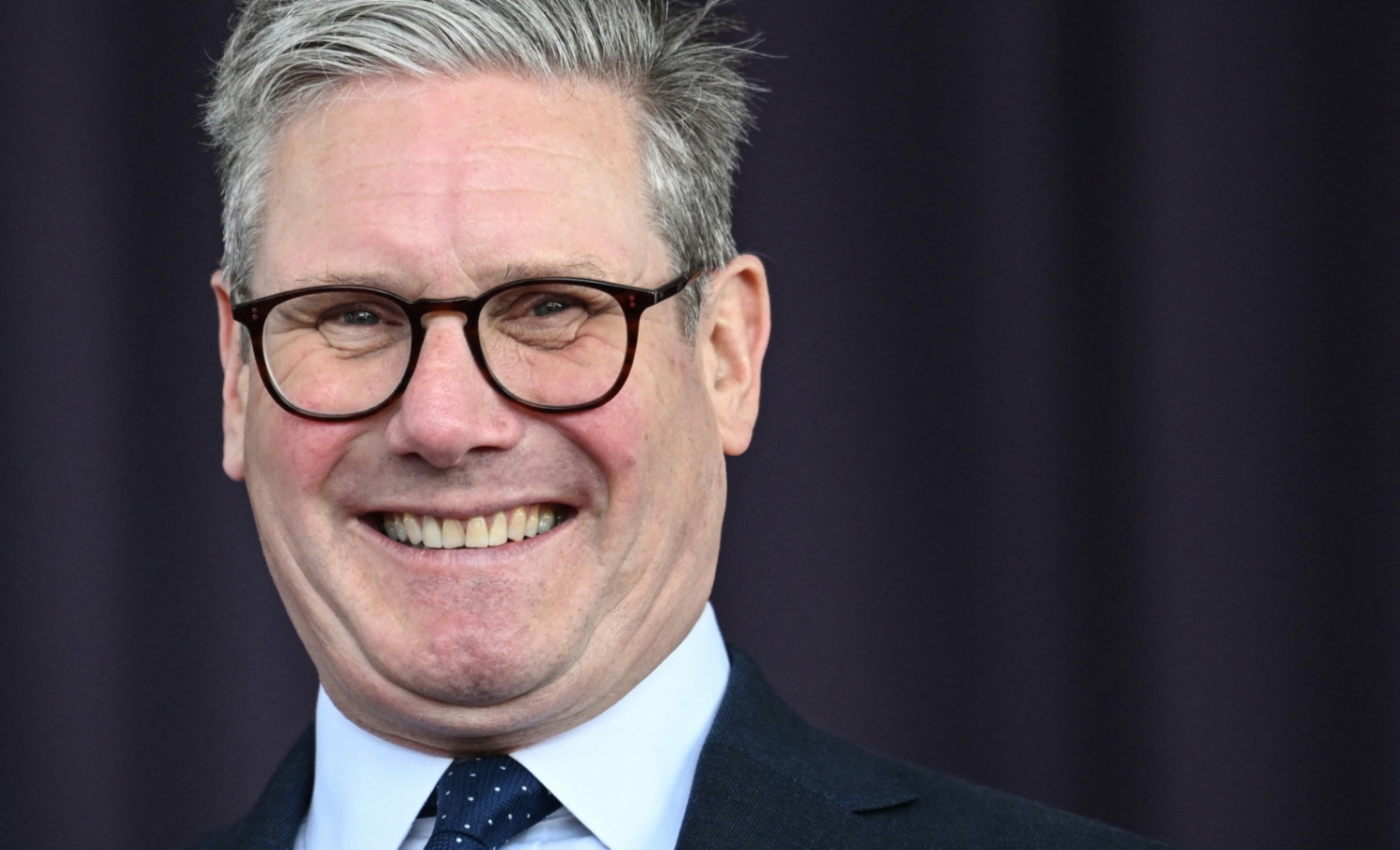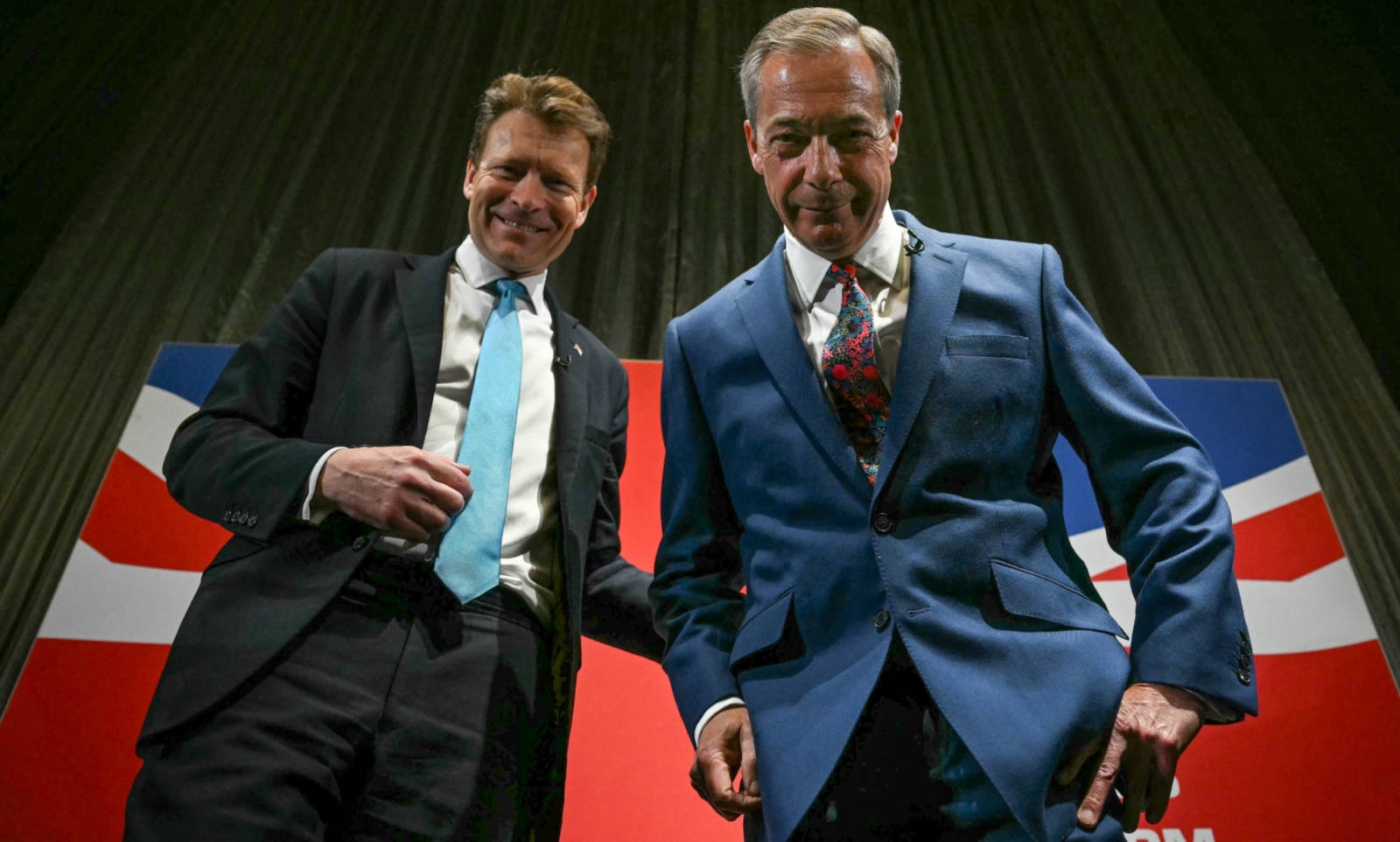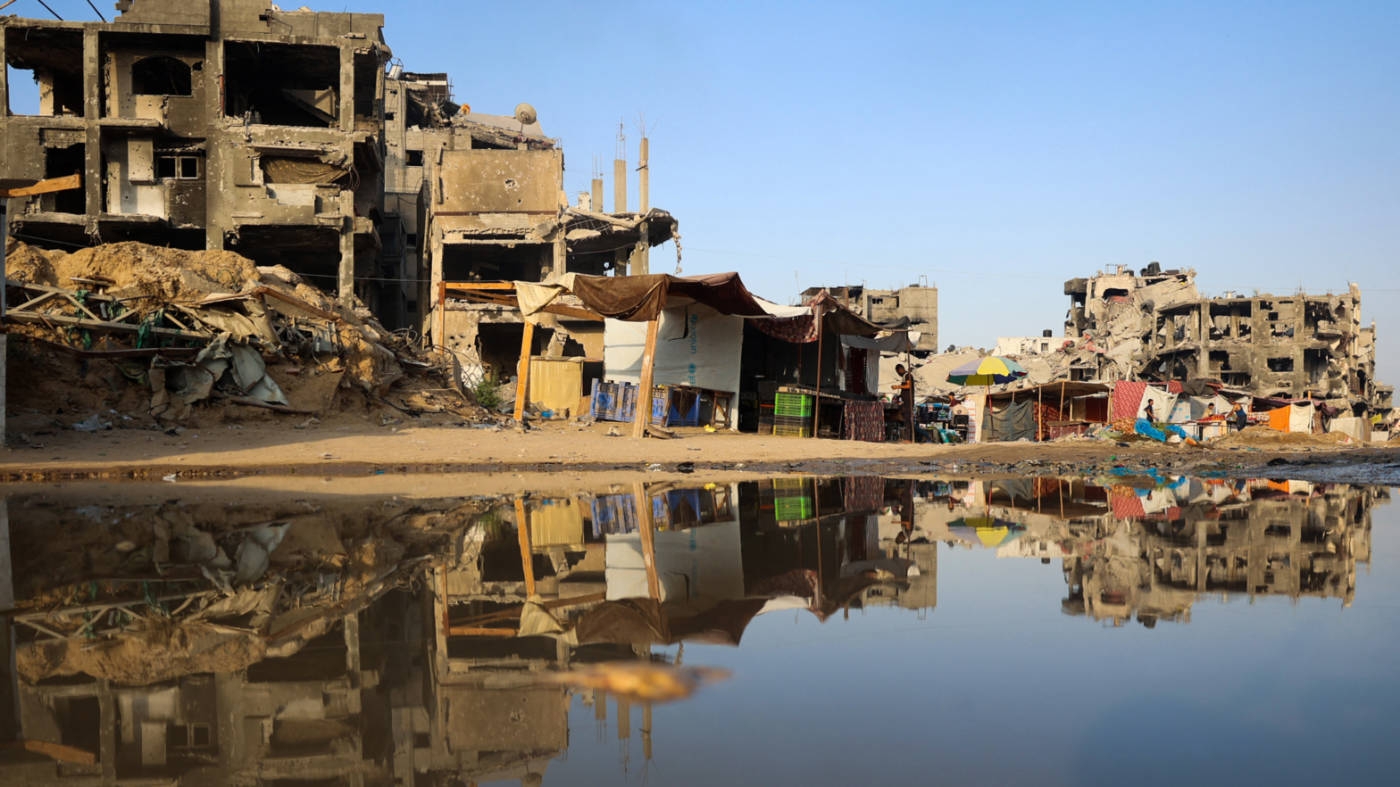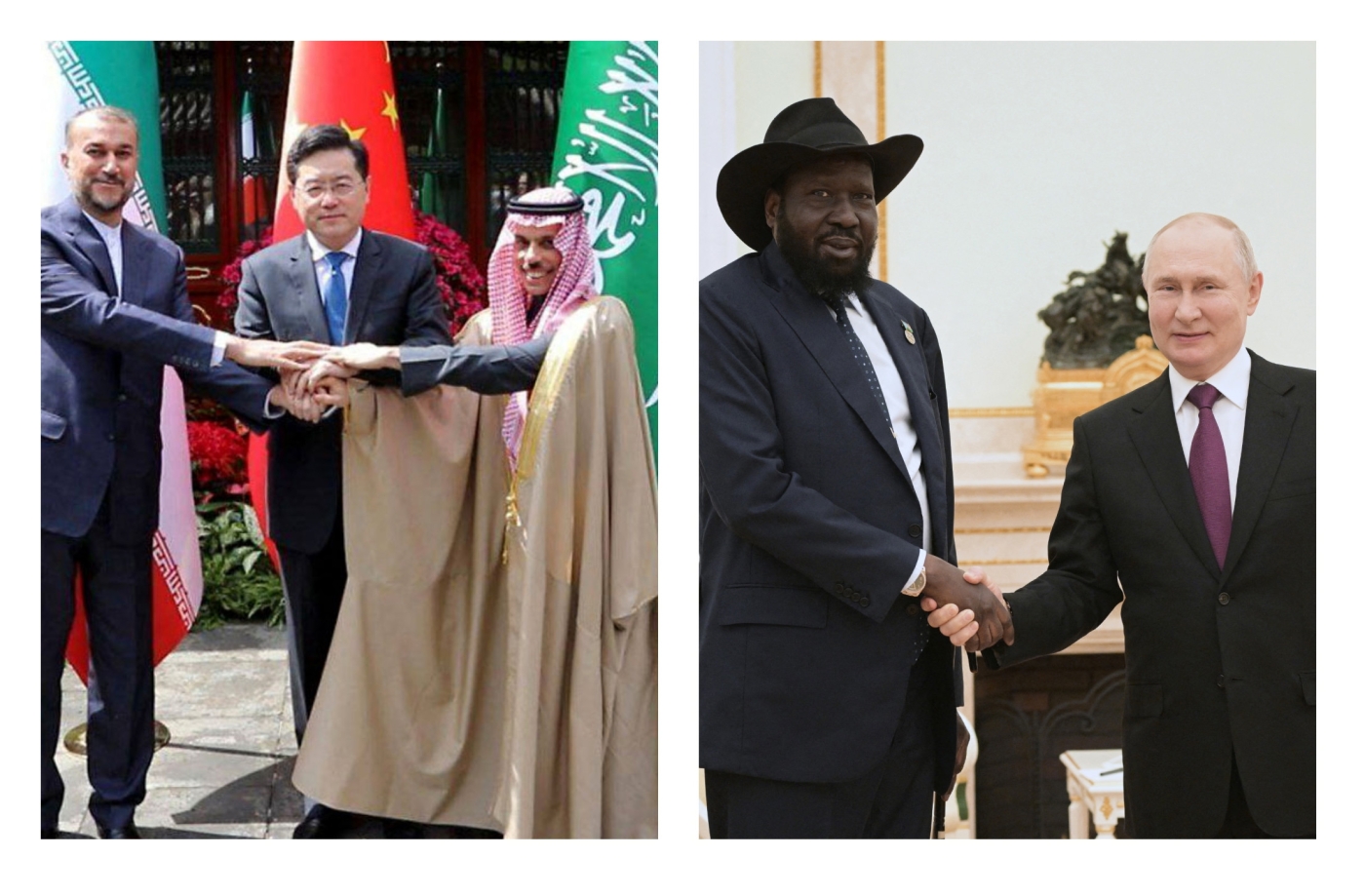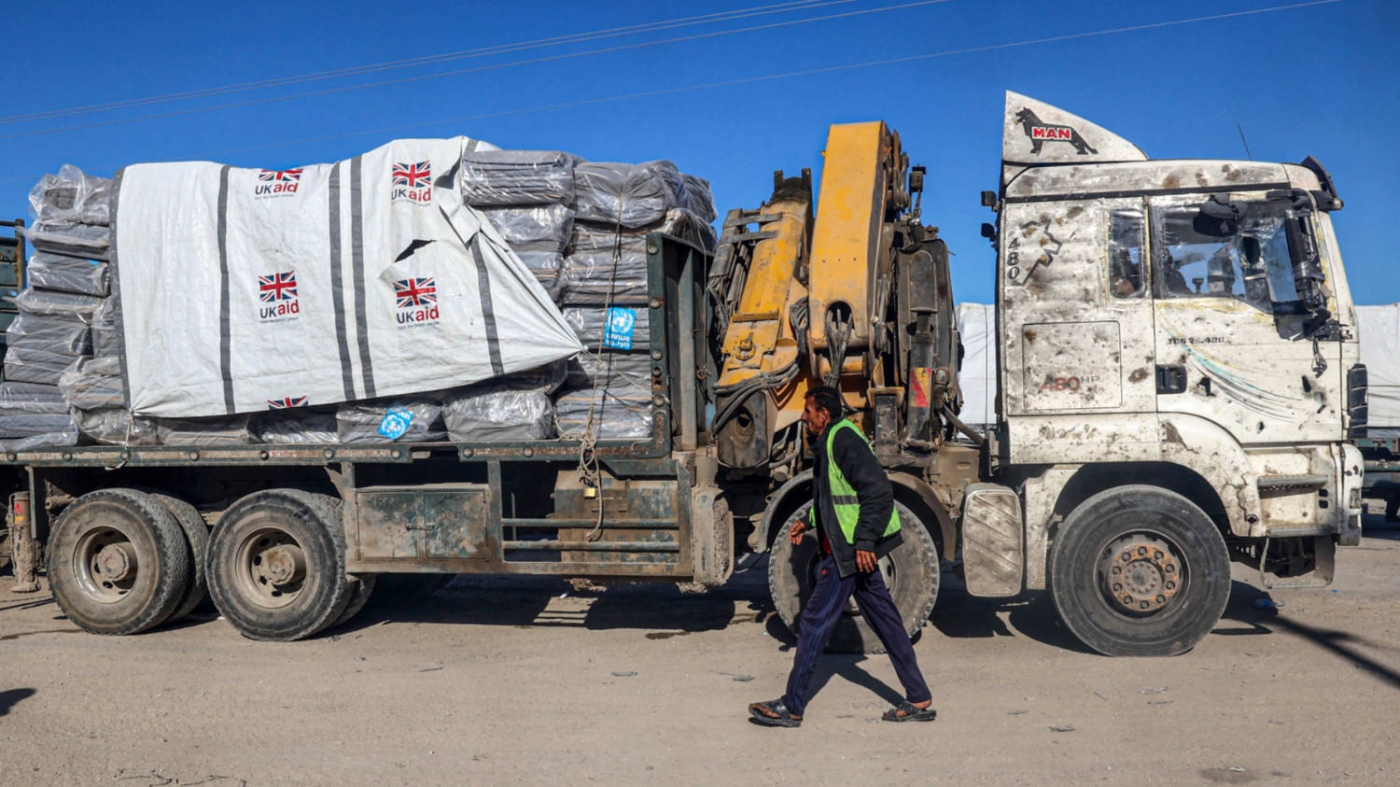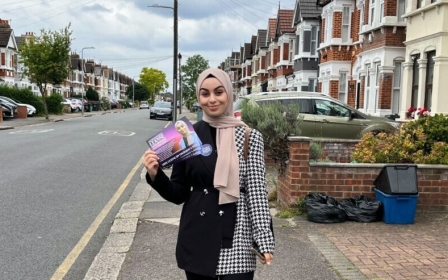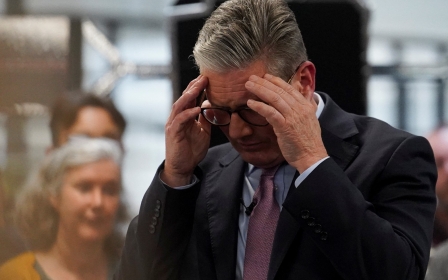UK election 2024: What do the parties' manifestos say about the Middle East?

The UK election, called by Conservative Prime Minister Rishi Sunak for 4 July, has focused more heavily on issues relating to the Middle East, including Israel's war on Gaza, than the previous national poll did in December 2019.
Back then, the agenda was dominated by domestic concerns including austerity, the National Health Service and Brexit (the major parties have avoided that last one in 2024).
Several Middle East issues were raised, including calls to ban arms sales to Saudi Arabia (mentioned by Labour and the Liberal Democrats), recognition for Kurdish minorities (the SNP) and better treatment for refugees from Syria (the SNP again). But they were little discussed and soon fell off the agenda.
Only one issue has re-emerged this time round, dominating UK foreign policy discussions as it has since October last year – Israel and Palestine.
Both the Hamas-led attacks on southern Israel on 7 October, and the Israeli war on Gaza, were extensively captured on social media and galvanised discussion in the UK across all media. Thousands of pro-Palestine protestors, calling for a ceasefire, subsequently came onto the streets, as have supporters of Israel.
New MEE newsletter: Jerusalem Dispatch
Sign up to get the latest insights and analysis on Israel-Palestine, alongside Turkey Unpacked and other MEE newsletters
Aside from the war itself, politicians in the UK have been watching public reaction and sentiment, given how they intersect with British society. What limitations, for example, should be placed on protests? Should the UK sell arms to countries attacking populations in defiance of international law? Do public organisations, including local government, have the right to boycott and disinvest from countries whose policies they oppose?
The conflict has also shaken political parties which previously assumed they could depend on specific voter demographics for support. The Muslim Vote (TMV), for example, backs parliamentary candidates demanding a ceasefire in the war and who are standing in constituencies with a significant Muslim electorate.
It was formed after Labour, for who many Muslims usually vote, initially backed Israel’s war on Gaza: as a result, the party suffered at by-elections and local elections, and has since been more critical of the Israeli government. Other parties have likewise reviewed and given more prominence in their policies toward Israel and the question of Palestine's statehood.
What's been happening in UK politics?
This cautious approach is with good reason, with UK politics becoming more fractured and unpredictable during the past two decades. Before 2010, one of either the Labour or Conservative parties usually governed, with the other party in opposition and the Liberal Democrats the perennial third force of British politics. But the 2010 election left the House of Commons with no overall majority for the first time since the 1970s.
The Conservatives have since ruled for the past 14 years, first in coalition with the Liberal Democrats, then on their own after the 2015 election. During that time the right of the Conservative party has become increasingly dominant, especially after the UK voted for Brexit in 2016.
The December 2019 election delivered the Conservatives an 80-seat majority under Boris Johnson: since then the UK has weathered the Covid pandemic, the response to the Russian invasion of Ukraine, and the economic blowback from leaving the EU. There have also been three prime ministers, of who one, Liz Truss, only lasted 49 days in office.
The mercurial state of UK politics can be seen by the frequent changes of prime minister in recent years: from 1976 until 2010 (34 years), there were five PMs; from 2016 to 2022 (six years), there were also five, all Conservative.
Aside from the Liberal Democrats, the smaller parties for this election include Reform UK to the right of the Conservatives, the socialist Workers Party for Britain and the left-of-centre Green Party. Both the Scottish National Party (SNP) and Plaid Cymru (Welsh for "Party of Wales"), campaign on relevant national issues, including independence, but have a presence in the House of Commons. Northern Ireland also elects lawmakers to Westminster but has a more distinctive political system than the rest of the UK, with several parties also represented in Ireland, and plays little part.
During the election campaign, each party usually issues a written manifesto, setting out their vision and proposals, should they win. It is not legally binding, but any party that reneges once in power risks losing voter support. Taken as a whole, the manifestos represent the UK political temperature.
Who are the parties in the UK election?
The Economist described the Conservative Party as "the world's most successful political party" after its bigger-than-expected majority election in 2019. But it is now trailing badly in the opinion polls under Sunak and expected to lose on 4 July. Chief among its threats are Nigel Farage and Reform UK, attracting support from the right of the Conservatives, not least over immigration. The Conservatives have been criticised by many, including inside the party, for not dealing with internal accusations of Islamophobia or, as it calls it "anti-Muslim hatred".
The Labour Party last held power from 1997 until 2010, first under Prime Minister Tony Blair, then Gordon Brown. Since 2010, the party's policies have swung from centrist under Ed Milliband to the left-wing leadership of Jeremy Corbyn during 2015-2020, to the more centre-right leadership of Keir Starmer.
The party under Corbyn was riven by accusations of antisemitism, including internally: during Starmer's tenure, the party removed internal opposition, while Corbyn himself was suspended after saying that allegations of antisemitism had been "dramatically overstated for political reasons". Labour is expected to triumph on 4 July: some predict a majority surpassing that of the Conservatives under Margaret Thatcher in 1983 (144-seat majority) or Labour under Blair in 1997 (179-seat majority).
The centrist Liberal Democrats have traditionally been the third force in UK politics, including seven PMs in the late 19th and early 20th centuries. But they lost more than 80 percent of their 57 seats in 2015 after governing with the Conservatives. The party expect to do better in 2024 under leader Ed Davey, potentially attracting votes from disaffected Tories. Layla Moran, seeking re-election as MP for Oxford West and Abingdon, is the UK parliament's first lawmaker of Palestinian descent. (Click constituency links to see all candidates standing.)
The Scottish Nationalist Party (SNP) focuses on Scotland, where it leads the devolved government, but also has a sizeable presence at Westminster. It has had three leaders since 2019, including Humza Yousaf, the UK's first Muslim party leader. John Swinney has stabilised the party since his unopposed election in May. Since October, the party has been the most pro-Palestinian at Westminster under its House of Commons leader Stephen Flynn, including pushing for a Commons debate about a ceasefire in Gaza. It is unlikely to equal the 48 seats it took in 2019.
Plaid Cymru campaigns for an independent Welsh state. Until earlier this year, it gave guarded support to the ruling Welsh Labour government, the biggest party in the devolved National Assembly or Senned. Most of the party's support comes from the country's more rural western districts.
The right-wing Reform UK party is registered as a company and was formally founded in 2021 as a revamped version of the Brexit Party: it is mostly funded by businessman Richard Tice and has strong links with conservative circles in the US.
Reform UK is dominated by Nigel Farage who, having first said he would not participate in this election, declared he would stand in Clacton, as well as replace Tice as leader. Its focus is on cutting immigration, almost to the exclusion of wider issues, not least foreign policy: many Conservatives would welcome Farage among their ranks, even as leader. (Reform UK's only MP in the previous parliament was Conservative defector and deputy chairman Lee Anderson.)
The Workers Party of Britain formed in 2019 after the heavy electoral defeat of Labour under Corbyn, and states it is "a socialist alternative to the corrupt Labour Party". Its only MP is George Galloway, a former Labour lawmaker who was elected to Rochdale in February 2024 on a heavily pro-Palestine ticket. The party's manifesto seeks to better conditions for the country's working class.
The Green Party tends to find more success at local elections, with its mix of environmentalism and left-wing policies, than it does at Westminster. Caroline Lucas, its sole MP, is stepping down as of this election but it hopes to pick up more seats this time. Current co-leaders are Carla Denyer and Adrian Ramsay
So what's in the manifestos?
Check here for the manifestos for the Conservative Party, the Labour Party, the Liberal Democrats, the Scottish National Party, Plaid Cymru, Reform UK (it calls it a "contract"), the Green Party and the Workers Party of Britain.
To save you time, below we give a flavour of what they say about the Middle East and related issues.
Where the UK parties stand on...
Israel's war on Gaza
The UK's right-leaning parties are much more circumspect about Israel's war on Gaza; those on the left, especially the smaller parties, are very direct in their language and demands.
Ceasefire calls: Labour, the LibDems, the SNP, Plaid Cymru and the Green Party all demand, in varying language, an immediate ceasefire and the release of hostages. Labour states: "Long-term peace and security in the Middle East will be an immediate focus. Labour will continue to push for an immediate ceasefire, the release of all hostages, the upholding of international law, and a rapid increase of aid into Gaza."
War crimes and arms sales to Israel: The SNP, Plaid Cymru and the Green Party want an end to arms sales to Israel. Plaid Cymru, as well as the Greens, also call for Israel to be investigated for possible war crimes.
Accusations of apartheid and ethnic cleansing: Plaid Cymru calls Israel an “apartheid” state and demands the expulsion of the Israeli ambassador to the UK until Israel "ends its apartheid and illegal actions”. It also wants a family reunification scheme for those caught in the fighting in Gaza, with a "clear right to return to their homeland when possible to do so". The Workers Party says that Palestinians are "victims of ethnic cleansing", also calls Israel's actions a "brutal onslaught", and that its "stand against Israel is a stand for the Jewish people".
No mention of the war: Neither Reform UK nor the Conservatives make direct mention of Gaza or a ceasefire. The latter states: "We staunchly stand behind Israel’s right to defend itself and to live with security. We will continue to support access to aid for those affected by the conflict."
Palestinian statehood
Almost all the UK's political parties call for a Palestinian state in some form - the issue is when they believe this should happen and the form it may take.
Statehood when the time is right: Of the two major parties, the Conservatives state that "our long-standing position has been that we will recognise a Palestinian State at a time that is most conducive to the peace process"; for Labour "Palestinian statehood is the inalienable right of the Palestinian people. It is not in the gift of any neighbour and is also essential to the long-term security of Israel. We are committed to recognising a Palestinian state as a contribution to a renewed peace process which results in a two-state solution with a safe and secure Israel alongside a viable and sovereign Palestinian state."
Statehood at an unspecified time: Plaid Cymru says that Palestinian statehood is an "essential step towards peace in the region" while the Greens call for an end to the "illegal occupation of Palestinian land".
Immediate recognition: The LibDems want recognition of the "independent state of Palestine with immediate effect" and a two-state solution "based on 1967 borders, to deliver the security and dignity that Israelis and Palestinians deserve". The SNP says it will "continue to call on the UK Government to follow the lead of Ireland, Norway and Spain by immediately recognising Palestine as a state. We believe that recognising Palestine as a state in its own right is the only way to move towards a just and durable long-term peace, in the interests of both Palestinians and Israelis."
One-state solution: Only the Workers Party believes in a one-state solution, in which "all those born in Palestine-Israel can live in peace with equal rights". It also calls for the Palestinian right of return and an end to Israeli settlements in the West Bank, although cautions that the “details cannot be worked out by us”.
No comment: Reform UK does not mention Palestine statehood in its manifesto.
The BDS movement
The Boycott, Divestment and Sanctions movement, known as BDS, seeks to hold Israel to account for its actions against Palestinians financially, from arms and groceries to pension funds and entertainment. In the UK, the Activity of Public Bodies (Overseas Matters) Bill, intended to stop public bodies participating in such action, had yet to complete its parliamentary passage when the election was called. If the bill is to be passed, then it needs to be reintroduced by the next parliament.
For BDS: The Conservatives state: "We will bring back our Bill to ban public bodies from imposing their own boycott or divestment campaigns against foreign countries and territories."
Against BDS: Plaid Cymru opposes the bill as it “supports all campaigns against oppressive states using any peaceful methods…”
Not mentioned: Given the current level of protests relating to Palestine and Israel, the issue is surprisingly not supported or criticised by Labour, the LibDems, the SNP, Reform UK, the Greens or the Workers Party.
The rest of the Middle East
Aside from Israel and Palestine, the parties also cover economic deals with Gulf states, the need for peace in Sudan and the perceived threat from Iran. There is no mention of Saudi Arabia, Yemen or the Kurds, all of which were prominent in 2019. The crisis in Syria has also dropped down the agenda.
Iran: The Conservatives will continue to take action to prevent Iran and its proxies from, it says, attacking the UK and its partners. It highlights how it has "protected maritime security from Houthi attacks". The Lib Dems would proscribe the Revolutionary Guard, recognising, it says, the existential threat of Iran not just in the Middle East but to western democracies.
The Gulf: The Conservatives will "continue to seek closer ties with partners in the Gulf and Middle East based on an appreciation of regional perspectives and shared interests" and complete trade agreements with the Gulf Cooperation Council (GCC). Labour would "deepen our co-operation with partners across the Gulf on regional security, energy and trade and investment".
Israel: The Conservatives would continue to pursue free trade with countries "such as Israel".
Sudan: The Lib Dems want the UK to play more of a role in Sudan, including humanitarian aid, efforts to seek a ceasefire and "long-term peace where civilians form a democratic government and war crimes are prosecuted". The Conservatives will "redouble our efforts to help achieve diplomatic breakthroughs" in Sudan as well as Cyprus.
The rest of the world
Both Russia and China have continued to play a role in the Middle East and North Africa since the last UK election, be it through Moscow's forces in Syria, its proxy army, the Wagner Group, in Libya and Sudan, or China's economic advances in the Gulf and role as peace-maker between Tehran and Riyadh. But tensions continue to simmer between Moscow, Beijing, and Washington and its allies - including the UK.
China: The Conservative manifesto makes several negative mentions of China, in contrast to the party's pro-Beijing agenda under former-PM-now-foreign-minister David Cameron a decade ago. The party says it will continue to raise its “grave concerns” about human rights in China, “from Tibet and Xinjiang [home of the persecuted Uyghur minority] to Hong Kong", including asset freezes and travel bans.
Labour promises that on China, it will "co-operate where we can, compete where we need to, and challenge where we must" and proposes an audit of "the challenges and opportunities China poses". The Lib Dems say the UK needs to recognise that the "human rights abuses being perpetrated against the Uyghurs in Xinjiang amount to the crime of genocide".
The Workers Party deplore "the whipping up of hysterical Sino- and Russophobia".
Russia: Backing for Kyiv in its war against Moscow, including Ukraine's right to defend itself, comes from almost all parties: some, such as the Lib Dems and Conservatives, go further, advocating continued military support and using frozen Russian assets to support in Ukraine's war effort. Labour says "the UK’s military, financial, diplomatic and political support for Ukraine will remain steadfast. Labour will support efforts to hold Putin’s Russia to account for its illegal war, backing calls for a Special Tribunal for the Crime of Aggression".
The Workers Party breaks ranks and says it condemns the "expansionary provocation of NATO in alliance with another ethno-nationalist government that throws its own people into a perpetual meat grinder".
The arms trade
Defence is a big earner for the UK: in 2022, defence exports accounted for £11.2bn. The biggest market is the Middle East, especially Qatar and Saudi Arabia, which accounted for 43 percent of total UK arms exports from 2018-2022. There is evidence that, since the last election, British-produced weaponry, which needs to have a government-approved licence for export, has been used in several conflicts, including the war in Yemen and Israel's war on Gaza.
Boost the arms trade: The Conservatives want to boost investment in the arms sector so the UK can "become the largest defence exporter in Europe by 2030". Reform UK goes further and promises to introduce "incentives and tax breaks to boost the UK defence industry".
Sell arms but be mindful of international law: Labour says it will "support industry to benefit from export opportunities, in line with a robust arms export regime committed to upholding international law".
Licence crackdown: The Lib Dems would introduce a "presumption of denial" for exports to governments listed as human rights concerns: similarly, Plaid Cymru wants no licences issued to sell arms to “countries which have poor human rights records” among other measures, and ultimately wants the UK to quit the arms trade. Both the SNP and Greens want to halt arms sales to Israel.
Immigration
Immigration was one of the fundamental issues during the 2016 Brexit vote, with many supporters believing that leaving the EU would allow the UK to control its borders. But net migration has continued to rise, from 252,000 in 2016 to 685,000 in 2023. Many migrants and refugees come from the Middle East and North Africa, fleeing from conflict or human rights abuses in countries as diverse as Afghanistan, Iran and, in earlier years, Syria and Turkey. The Conservatives have faced concerted pressure from the right of their party, and Reform UK, to impose ever tougher measures.
The Rwanda plan: The Conservatives say they will stick to its scheme whereby migrants and refugees who enter the UK without permission and use "dangerous routes", such as crossing the English Channel in small boats, would be flown to Rwanda and have their claims processed there: if successful, they would remain in the African country. Labour, the Lib Dems, the SNP, PC and the Greens would all scrap the plan. Reform UK makes no mention.
Small boats: Reform UK says it would detain migrants in small boats trying to reach the UK and deport them back to France. Labour blames criminal smuggler gangs who operate the routes and would create a new body “supported by new counter-terrorism style powers, to pursue, disrupt, and arrest those responsible for the vile trade”. The Lib Dems would provide safe and legal routes for refugees to avoid crossings the Channel, one of the world's busiest waterways.
Who is allowed to enter? The Conservatives would introduce an annual cap, determined by a parliamentary vote the previous year, and focus on attracting the “brightest and best skilled migrants… to contribute to our businesses and public services”. Reform UK would freeze all non-essential immigration and says that “essential skills, mainly around healthcare, must be the only exception.”
Labour states it will “restore order to the asylum system so that it operates swiftly, firmly, and fairly”, and that it will also act upstream, working with international partners to address the humanitarian crises that lead people to flee their homes".
The Green Party among others wants an end to the minimum income requirements for spouses of those holding work visas. The SNP would introduce a bespoke migration system for Scotland to address demographic and economic needs.
The Workers Party says UK foreign policy has been a key reason for the “flow of asylum seekers" and wants "entry directed primarily at the protection of those most placed at harm by the operations of foreign state terrorism and war” and warns that “countries like Syria, Eritrea, Iraq, Afghanistan and Iran are haemorrhaging many of their best young people because of our own imperialist actions”.
Antisemitism and Islamophobia
Conservatives: The party condemns both antisemitism and “anti-Muslim hatred”. It repeats its previous pledges of £54m for the Community Security Trust and £117m over four years for the Protective Security for Mosques scheme.
Labour: Labour will introduce measures to enshrine full rights to equal pay for those from ethnic minorities; also increase the monitoring of antisemitic and Islamophobic hate.
Lib Dems: The party will "work with communities to tackle the alarming rise of antisemitism and Islamophobia", to include funding security at places of worship, schools and community centres; and targeting hate speech in both the public and media.
SNP: Neither antisemitism nor Islamophobia are mentioned in its manifesto.
Plaid Cymru: "We recognise that people from the global majority are structurally disadvantaged, and proactive steps need to be taken to tackle and dismantle this structural racism.... We support research into the barriers that communities face in accessing healthcare and how to combat these, addressing structural and institutional racial discrimination and Islamophobia where present."
Workers Party: The party says that its “stand against Israel is a stand for the Jewish people and opposes antisemitism. At the same time “we also abhor the weaponisation of antisemitism for dubious political purposes” and the neglect and weaponisation of Islamophobia.
The Green Party: "The recent rise in Islamophobia and antisemitism highlights the importance of tackling hate crime and opposing divisions in our society. Elected Greens will support the right to religious expression and work with religious communities to defend the safety of places of worship."
Reform UK: Farage has been criticised for several comments about British Muslims, including that they do not share British values, and do not integrate. The manifesto states that it will "Stop Sharia law being used in the UK."
Overseas aid and development
In 1970, the UN set a goal for countries to spend 0.7 percent of Gross National Income (GNI) on Official Development Assistance (ODA). But during the pandemic in 2020, the UK cut its spend to 0.51 percent, or £12.8bn. Furthermore, around 18.7 percent of that is now spent by the Home Office, predominantly on support for refugees and asylum-seekers in the UK. In 2022, the top 10 territories in receipt of UK aid included Afghanistan, Yemen, South Sudan and Syria. What would the parties do about that 0.7 percent target?
Cut ODA still further: Reform UK suggests overseas aid is cut by half to “save £6 billion”. There should also be a review that “includes global quangos to which we pay over £7 billion every year”.
Restore ODA to 0.7 percent - but when the time is right: The Conservatives "will return to spending 0.7% of GNI when fiscal circumstances allow" and with "a focus on fragile states". Labour will do so as "soon as fiscal circumstances allow": it says the UK's "development work must be closely aligned with our foreign policy aims, co-ordinated to tackle global poverty, instability, and the climate and nature crisis".
Restore ODA to 0.7 percent immediately: Plaid Cymru "calls on the next UK Government to reinstate that commitment as a matter of urgency", as do the SNP and LibDems.
Increase ODA beyond 0.7 percent: The Greens want UK ODA to be one percent by 2033 and for the "people of the Global South to take the lead on how aid is spent... this may mean direct support to affected populations rather than working through authoritarian or corrupt governments.
Free speech and the right to protest
The Hamas-led attacks on southern Israel and Israel’s war on Gaza have ignited public debate in the UK about the bloodshed, including weekly protests across the country. Cities such as London have also witnessed disruptive protests by climate crisis groups including Just Stop Oil. Such action comes against a background of increasing division and debates about the extent of free speech on issues including the Middle East.
Protests: The Conservatives are mindful of the weekly pro-Gaza protests, held since October: its manifesto says police would be greater powers to take into account the “cumulative impact of protests”; also “regular guidance on the statements, chants or symbols, for example, the swastika or the term ‘jihad’”. Protests would be banned outside schools and teachers protected from accusations of blasphemy. Fresh measures, it says, could include bans at protests on face coverings, pyrotechnics and scaling war memorials.
Definitions: The Conservatives also say they would build on recent laws, including a new extremism definition under which certain groups that promote an ideology based on violence, hatred or intolerance will be blocked from government funding and meeting officials. Reform UK would change the definition of what is a hate crime.
Free speech: Reform UK wants a law to “stop left-wing bias and politically correct ideology that threatens personal freedom and democracy”; and universities that allow “political bias or cancel culture must face heavy financial penalties. It would also "legislate to stop left-wing bias and politically correct ideology" including "left-wing hate mobs". The Workers Party opposes what it calls “buro-fascism” which it says affects free speech and would criminalise denying a political organisation or individual a platform.
Anti-protest laws and measures: The Lib Dems and Greens would scrap such legislation; the Lib Dems would halt immediately the use of live facial recognition surveillance. Plaid Cymru supports non-violent protest and opposes recent anti-protest legislation.
The parties also commented on...
...Prevent: The Green Party advocates scrapping Prevent, the much-criticised anti-terror strategy which opponents say unfairly targets certain demographics. Labour states that it will "update the rules around counter-extremism, including online, to stop people being radicalised and drawn towards hateful ideologies".
...Martyn's Law: The Conservatives, SNP and Labour state they will introduce Martyn’s Law, named after Martyn Hett, who was killed in the Manchester Arena attack in 2017. The legislation, which ran out of parliamentary time due to the calling of the election, demands public events and venues have preventative plans in place against terror attacks.
...BBC World Service: The Lib Dems would protect the independence of the much-criticised BBC and other public service broadcasters, as well as restore the global reach of the BBC World Service. But Reform UK would scrap the BBC licence and reform the corporation, which it says is out of touch, wasteful and institutionally biased. The Conservatives state that they will "support the BBC World Service".
...historic slavery: The Greens will establish a parliamentary commission to look at the issue of reparations caused by the trans-Atlantic trafficking of enslaved Africans. In contrast, Reform UK will ensure that "teaching about a period or example of British or European imperialism or slavery must be paired with the teaching of a non-European occurrence of the same to ensure balance…"
Middle East Eye delivers independent and unrivalled coverage and analysis of the Middle East, North Africa and beyond. To learn more about republishing this content and the associated fees, please fill out this form. More about MEE can be found here.


